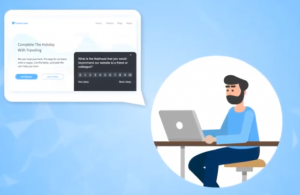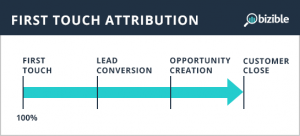Hiring a new agency this year? Follow these tips for a smoother relationship.
Your business is ready to step up its marketing efforts. You are looking for a reliable, intelligent professionals who truly understand your business needs and have access to the latest marketing tools (and the know-how to make the most of them) to execute strategies on your behalf to grow your business.
You’ve made the decision to retain an agency instead of hiring a full-time employee.
In many ways, this decision makes more financial sense. When retaining an agency, you don’t have to invest time or money in training a new hire. You also don’t have the additional taxes associated with full-time employees. Plus, you can select the agency that offers the variety of services you feel your business needs, as opposed to trying to find one employee who is skilled in all aspects of marketing.
You may think vetting and hiring the right agency is the hard part. Once you have signed on the dotted line, you think it’s smooth sailing from here on out.
And it can be, if you are committed to doing your part as a cooperative client.
About Agency-Client Relationships
These days, strong agency-client relationships last only about 3 years, about 60% shorter than business relationships in the mid-1980s, according to The Bedford Group. And some are even shorter than that!
What accounts for this shorter lifespan?
For one, attention spans are much shorter in our instant-gratification society. Patience runs thin; business executives don’t want to wait for 90-240 days for SEO tactics to start yielding positive results. When immediate results don’t materialize, it can be easy to blame the agency, and want to restart the search for a replacement agency.
Secondly, the variety of specialization in agencies can lead to fragmentation. As a business, you may have a digital marketing agency, a web development agency, a paid-search agency, and a PR agency on retainer at the same time. While this may allow you to hire specially-trained experts in each area, it may also cause overlap, confusion, and an ultimate breakdown in communication between client and agency, which can make everyone’s jobs more difficult.
Thirdly, high turnover rates amongst C-suite executives can cause confusion as well. Today’s average CMO stays for only 22 months before moving on to a new role. When new leadership comes into position, that person not only brings new ideas to the position, but likely also brings new agency relationships, causing even more turnover.
As the client, your dollars are valuable, so you want to break this rut and make sure that your marketing agency relationship can withstand short attention spans and unrealistic expectations.
So how can you do that?
Lessons in Agency-Client Relationships
Over the past 4 years, we’ve been fortunate to build valuable, long-lasting relationships with our clients. But, like most agencies, we have also suffered from client churn and experienced negative interactions with clients. Not surprisingly, these negative relationships did not last very long.
Instead of focusing on the negative, we’ve learned from these experiences and used them to set more clear expectations and parameters when onboarding new clients.
So, we have compiled these experiences to share with other businesses looking to get started with a marketing agency.
These 14 tips will help you become a better client, which will ultimately lead to a stronger, more valuable or more effortless relationship with your marketing agency.
14 Ways to Be a Better Client
- Set realistic expectations for projects, deadlines and results. As your agency, we want you to be happy with the work we are producing. But, if your expectations are wildly out of range, it may be more difficult for us to produce quality work under strict guidelines or tight deadlines. Just as we promise to be realistic in our timelines and goals, you should be realistic in your expectations of the results of our work. Being on the same page will help us to be more successful.
- Reply to emails and phone calls promptly. Often, we are waiting on your answer to the question posed in an email, text message or phone call before we can move forward on a project. Extend us the courtesy of a prompt reply so that we can keep the workflow moving.
- When asked for feedback or approval, give it. Over time, we will learn what you like, and what you don’t like, about the imagery we use, the wording we choose and the work we produce. But we can only learn if you tell us. Likewise, we may need you to report back on the success of a campaign from your end. How many times did the phone ring? How many coupons were redeemed? What were the sales totals last month? We can’t accurately judge our success unless you help us close the loop on our campaigns.
- But remember to give feedback in a timely manner. Receiving your feedback promptly helps us stay on deadline and deliver to you according to the expectations and goals we have set.
- You play a role in our deadlines. We build our project calendars out weeks in advance, and these calendars are dependent upon receiving information, assets, feedback or approval from you. When you adhere to the deadlines we’ve requested, you help us meet our deadlines as well, which allows us to launch your campaign on time.
- Remember that this is a partnership. This relationship is a two-way street. We can’t guess your thoughts or feedback, so it’s important to meet regularly to evaluate our relationship to keep both sides of our partnership happy.
- Treat us well, please! Yes, you are paying us to do your work. But, ultimately we are working with you, not for you. We want you to be successful too! So, don’t forget to show us the same respect and courtesy you would if we were in your office every day.
- Establish primary channels of communication. Nothing is more frustrating than waiting on someone to reply, only to find out that the right person never got the message. From the beginning of the relationship, establish primary points of contact. Then maintain those communication channels! If there are multiple points of contact, be clear about who is responsible for what types of questions and answers, who all should be cc’d on emails, and who should be communicated with first.
- If you have more than one agency on retainer, help us work together. Let us know which agency is responsible for what and how we can best work with your other business partners. Because we all have the same goal–to help you succeed!
- Outline an approval process. Do you need to read every email, blog post and social post before it goes live? How many people internally have to sign off on a campaign before we can launch. Outline this for us at the beginning so that we can build approval times into our project timeline.
- When is an emergency truly an emergency? Please don’t send an email or text asking us to call you because it’s an emergency if there isn’t an actual emergency. Is your website down? Emergency. Did you find a small typo in an email that already when out? Upsetting, but probably not an emergency.
- Be specific in what you need from us. If you do need us to return your call or email promptly due to an urgent request, let us know the details of your request in your message. “Please call me, it’s urgent” is not descriptive enough. “Please call me as soon as you can, our landing page is showing a 404 error” is. Giving us the information we need to assist you on the front end will help us in prioritizing our reply and action.
- Remember that you aren’t our only client. You have more than one client, so you understand that you can’t give equal attention to every client, every day. (Until we develop super-human capabilities, that’s just the way it is!) To balance, we prioritize each client’s work and dedicate time and resources to working on your account. That also means we dedicate time and resources to working on other clients’ accounts. So please be respectful of our time and our other clients’ priorities. You would be upset if we were constantly by another client during your project, so please respect the time we give to other clients.
- We are a business and we have to retain profit margins, too. Don’t forget that we are also a business, and we have to maintain profit integrity. It is our goal to provide the best work we can while maintaining profitability on your account. So, if you request a large project or additional projects outside our original scope of work, be prepared to pay an additional project fee or put another project on hold for this one.
The biggest key to success in any relationship–personal or professional–is communication. The more we communicate about your goals, timelines, projects, and needs, the better our relationship will be.
Business & Finance Articles on Business 2 Community(30)
Report Post



